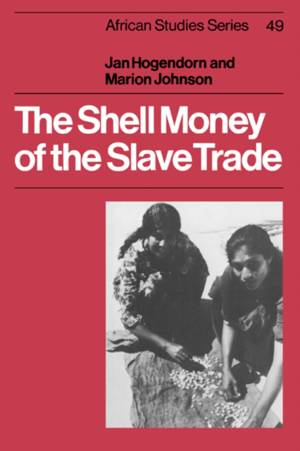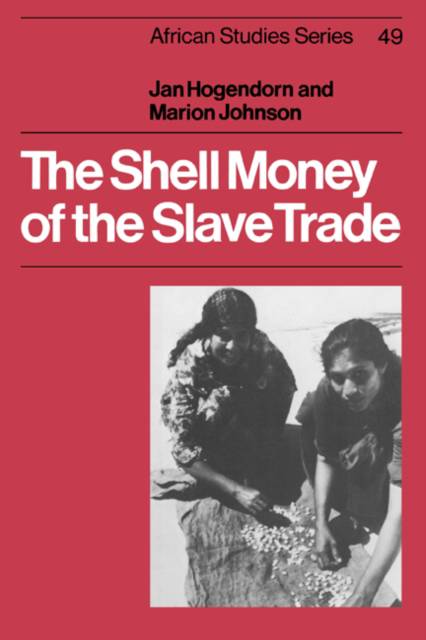
Bedankt voor het vertrouwen het afgelopen jaar! Om jou te bedanken bieden we GRATIS verzending (in België) aan op alles gedurende de hele maand januari.
- Afhalen na 1 uur in een winkel met voorraad
- In januari gratis thuislevering in België
- Ruim aanbod met 7 miljoen producten
Bedankt voor het vertrouwen het afgelopen jaar! Om jou te bedanken bieden we GRATIS verzending (in België) aan op alles gedurende de hele maand januari.
- Afhalen na 1 uur in een winkel met voorraad
- In januari gratis thuislevering in België
- Ruim aanbod met 7 miljoen producten
Zoeken
€ 82,45
+ 164 punten
Omschrijving
This study examines the role of cowrie-shell money in West African trade, particularly the slave trade. The shells were carried from the Maldives to the Mediterranean by Arab traders for further transport across the Sahara, and to Europe by competing Portuguese, Dutch, English and French traders for onward transport to the West African coast. In Africa they served to purchase the slaves exported to the New World, as well as other less sinister exports. Over a large part of West Africa they became the regular market currency, but were severely devalued by the importation of thousands of tons of the cheaper Zanzibar cowries. Colonial governments disliked cowries because of the inflation and encouraged their replacement by low-value coins. They disappeared almost totally, to re-appear during the depression of the 1930s, and have been found occasionally in the markets of remote frontier districts, avoiding exchange and currency control problems.
Specificaties
Betrokkenen
- Auteur(s):
- Uitgeverij:
Inhoud
- Aantal bladzijden:
- 248
- Taal:
- Engels
- Reeks:
- Reeksnummer:
- nr. 49
Eigenschappen
- Productcode (EAN):
- 9780521541107
- Verschijningsdatum:
- 18/09/2003
- Uitvoering:
- Paperback
- Formaat:
- Trade paperback (VS)
- Afmetingen:
- 152 mm x 229 mm
- Gewicht:
- 367 g

Alleen bij Standaard Boekhandel
+ 164 punten op je klantenkaart van Standaard Boekhandel
Beoordelingen
We publiceren alleen reviews die voldoen aan de voorwaarden voor reviews. Bekijk onze voorwaarden voor reviews.









